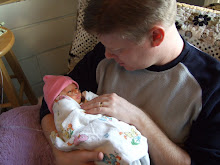- What was Paul's plan for: Entry to the area, Gospel presentation, Discipleship, Church formation, Leadership multiplication.
- What happened that was uncontrollable?
- What were the results?
I'm hoping that by concentrating on the spread of the early church in Acts, God will bring some key principles to life ... so here we go. It might get a little wordy, but I'm going to try to put the points that stand out to me in bold.
Acts Chapter 13
Paul's plan for entry:
In Cyprus, Paul travels around the entire island, and he goes to the Jewish synagogues. In Psidian Antioch Paul again goes to the synagogue and takes part in the services there. The other interesting thing here is that when the Jews incite persecution and trouble, Paul and Barnabas simply move on. They leave.
Paul's Gospel presentation:
Both in Cyprus and Psidian Antioch, Paul waits until asked to share the full Gospel. In Cyprus he is asked by a proconsul - and after the gospel presentation he curses a sorcerer who is then struck blind. In Psidian Antioch he is asked to come back and teach in the synagogue on the next sabbath.
In Psidian Antioch, we get a detailed version of Paul's Gospel presentation. He uses the past and culture of the people he is speaking to. He speaks very simply about the story of Jesus coming to earth. He proclaims that forgiveness of sins is possible through belief.
Paul's discipleship:
I only see one thing mentioned on this in Chapter 13. Paul moves on from the unresponsive Jews to the responsive Gentiles. He focuses on the people who are responsive.
Paul's church formation, leadership multiplication:
Nothing in here 'bout that.
What happened that was uncontrollable?
The Spirit said 'Go'. People invited him to speak. Persecution came from the sorcerer in Cyprus, and from the Jews in Psidian Antioch. Paul was filled with the Holy Spirit and performed a miracle in blinding the sorcerer. The disciples were filled with joy as they left Psidian Antioch.
What were the results?
In Cyprus, the proconsul believed. In Psidian Antioch, there was excitement in the city. The Gentiles honored the word of the Lord and all who were appointed believed. The word of the Lord spread through the whole region.
Personal Thoughts:
Two things stand out to me. First, it is shocking to me that Paul leaves when he does. What missionary in their right mind would just leave with all those new believers there. Why didn't he stay for a few months or a year to teach them? Second, it is interesting to me that in both cases Paul waits for a door to be opened before sharing the full Gospel. I pray that I would have the faith to trust God to leave when it's time to leave, and I pray that I would be entrusted with opportunities to share the forgiveness made possible through Jesus.



